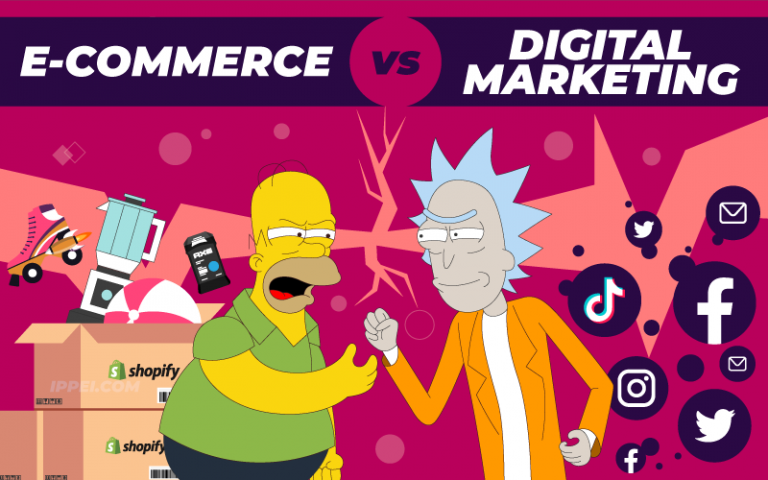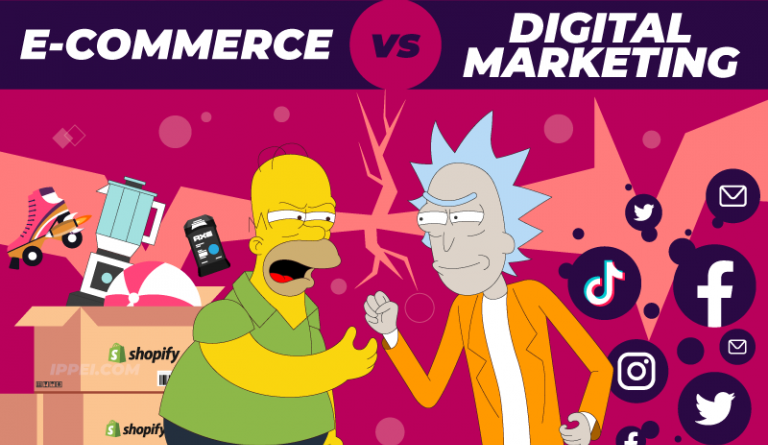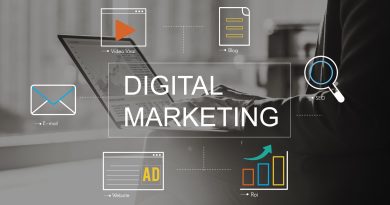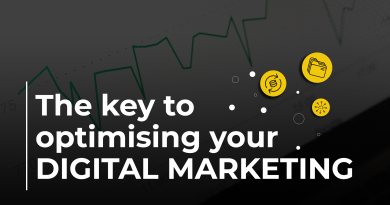Digital Marketing vs. Ecommerce: Navigating the Online Landscape for 2024
In today’s interconnected world, the digital realm has become an indispensable tool for businesses of all sizes. While digital marketing and ecommerce are often used interchangeably, they represent distinct yet complementary approaches to engaging with customers and driving sales online. Let’s delve into the intricacies of each to understand their unique roles in the digital landscape.

Digital Marketing: The Art of Connection
Digital marketing encompasses a wide range of online strategies aimed at promoting brands, attracting customers, and nurturing relationships. It’s about creating a digital presence that resonates with your target audience, fostering brand awareness, and driving conversions.
Core Elements of Digital Marketing:
-
Content Marketing: Crafting valuable, relevant, and consistent content to attract and retain a clearly defined audience.
-
Search Engine Optimization (SEO): Optimizing website content and structure to rank higher in search engine results pages (SERPs), increasing visibility and organic traffic.
-
Social Media Marketing: Building a strong presence on relevant social media platforms to connect with audiences, foster brand loyalty, and drive conversions.
-
Email Marketing: Sending targeted email messages to subscribers to nurture leads, promote products or services, and build relationships.
-
Pay-Per-Click (PPC) Advertising: Paying to have ads displayed on search engines, social media platforms, and other websites to reach a wider audience and drive targeted traffic.
Ecommerce: The Power of Online Selling
Ecommerce, or electronic commerce, refers to the buying and selling of goods or services over the internet. It’s about creating an online storefront where customers can browse, select, and purchase products with ease and convenience.
Key Aspects of Ecommerce:
-
Ecommerce Platform: Selecting and setting up an ecommerce platform, such as Shopify or WooCommerce, to manage your online store.
-
Product Listing and Management: Creating detailed and engaging product descriptions, uploading high-quality product images, and managing product inventory effectively.
-
Payment Gateway Integration: Integrating a secure payment gateway to process customer transactions seamlessly.
-
Shipping and Fulfillment: Partnering with reliable shipping providers to ensure timely and efficient order fulfillment.
-
Customer Service: Providing responsive and helpful customer support to address customer inquiries, resolve issues, and build trust.
Digital Marketing vs. Ecommerce: A Comparative Analysis
| Feature | Digital Marketing | Ecommerce |
|---|---|---|
| Focus | Building brand awareness, attracting leads, and nurturing customer relationships | Selling products or services online |
| Primary Objectives | Increased website traffic, higher search engine rankings, stronger social media presence, improved email engagement | Increased sales conversions, higher average order value, repeat customer purchases |
| Essential Skills | Content creation, SEO, social media marketing, email marketing, PPC advertising | Website development, product management, payment gateway integration, shipping and fulfillment, customer service |
| Tools and Platforms | Google Analytics, social media management tools, email marketing platforms, PPC advertising platforms | Ecommerce platforms, product management software, payment gateways, shipping management tools, customer service software |
The Intertwined Nature of Digital Marketing and Ecommerce
While digital marketing and ecommerce have distinct roles, they work in tandem to achieve a common goal: business success in the digital realm. Digital marketing drives traffic to your ecommerce store, while ecommerce provides the platform for converting that traffic into sales.
Harnessing the Power of Synergy:
-
SEO optimizes your ecommerce store’s visibility in search results, attracting organic traffic.
-
Content marketing promotes your products or services, generating interest and driving customers to your ecommerce store.
-
Social media marketing connects with potential customers, building brand awareness and influencing purchasing decisions.
-
Email marketing nurtures leads and drives customers back to your ecommerce store for repeat purchases.

Conclusion:
Digital marketing and ecommerce are not mutually exclusive but rather complementary forces that power online business success. By understanding their distinct strengths and leveraging their synergistic potential, businesses can effectively navigate the digital landscape, attract customers, drive sales, and achieve their marketing goals. Embrace the power of this dynamic duo and watch your online presence soar!



